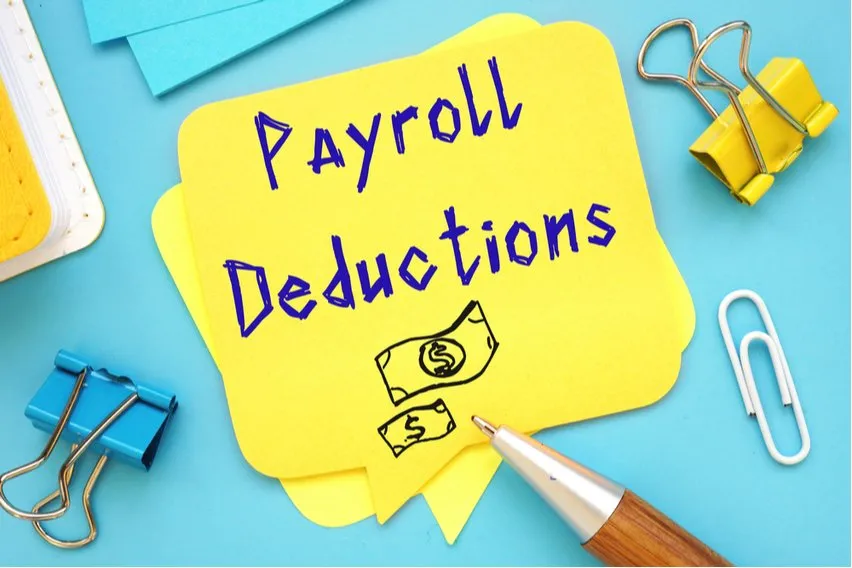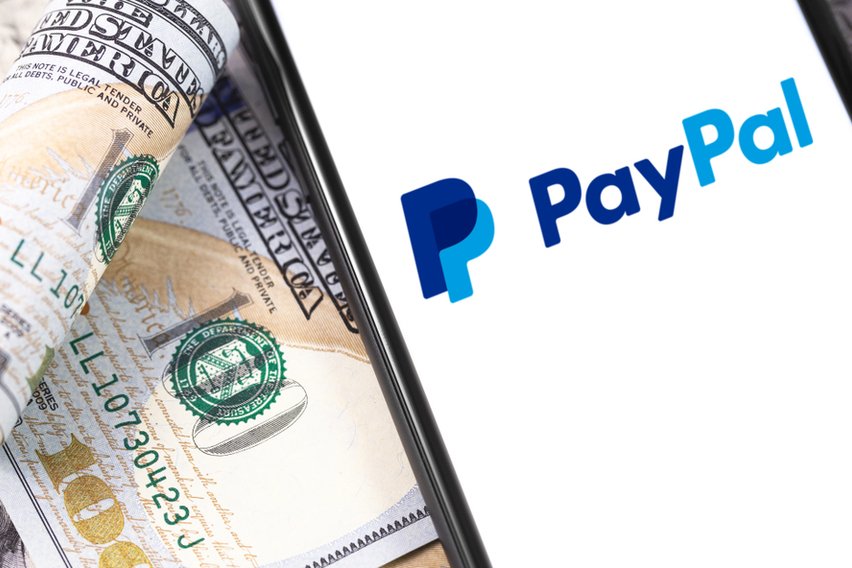What Is Payroll Deduction?

Did you know that payroll deductions are actually a good thing? Here’s everything you need to know about them.
Payroll deductions have this reputation of being a little bit…annoying. But hey, It’s easy to get annoyed about deductions when you don’t know why they’re happening. Deductions are crucial for financial health and by the time you finish reading this article, you will revel in payroll deductions. You’ll see!
Here are the top things you should know about payroll deductions:
Here’s What We’ll Cover:
What Exactly Is a Payroll Deduction and Should I Be Concerned?
How Do Payroll Deductions Work?
What Are Some Payroll Deduction Examples?
What Exactly Is a Payroll Deduction and Should I Be Concerned?
No! You shouldn’t be concerned. By knowing the purpose of each deduction, you will quickly see how they are a vital part of your business model and HR plan.
In summary, payroll deductions are wages that are withheld from employees’ net pay. The nature of these sums can go towards things such as health insurance, union dues, social security tax, and yes, your 401K.

Here are some categories payroll deductions can fall into:
Voluntary – Employees may choose to opt into this type of deduction. A voluntary payroll deduction provides health insurance and disability benefits.
Involuntary – Employees are required to contribute to this type of deduction. It includes government taxes and wage garnishments that are paid to the employer.
Pre-tax – deductions such as federal taxes, 401K, and health benefits were taken off an employee’s paycheck before taxes.
Post-tax – deductions such as wage garnishments and IRA plans are taken off after taxes are filed.
Freelance employees likely don’t have any deductions and are required to pay sums separately when filing income taxes.
How Do Payroll Deductions Work?
An employer will offer a payroll deduction plan to the employee at the time of hiring. They will also include an outline of benefits/insurance and rates. There is usually a set percentage for each deduction and this cannot be changed.
The reason for employees opting into these plans can be for peace of mind, but also for investment reasons. For example, some companies will offer stock shares at a discounted rate and it is up to the employee if he/she would like to opt in.
What Are Some Payroll Deduction Examples?
Some common voluntary payroll deduction examples include:
Health insurance: includes medical, dental, and vision. Usually lasts through the duration of employment and is deducted from each paycheque.
Short-term and Long term disability: ensures that the employee would still receive their salary in case of an accident.
401K or IRA – retirement savings plans that are common deductions for most organizations.
Union dues – If the organization is unionized, most employees will opt into a union via union dues. Its purpose is to protect employees’ rights and provide workplace conflict mediation.
Profit share – a type of deduction offered that can motivate employees to contribute up to a limit, providing a common goal in the workplace.

Some involuntary payroll deduction examples include:
Federal income tax – a percentage taken off of your paycheck that goes towards paying your income tax.
FICA taxes – used for social security and Medicare.
Local taxes: usually includes unemployment insurance and disability.
Wage garnishments – an amount retained that is often used when an employee needs to pay a debt owing to the company via a court order.
Child support payments – mandatory payments ordered by a court.
Key Takeaways
So we demystified payroll deductions! Let’s recap the key takeaways:
- Payroll deductions are necessary for financial wellness.
- There are involuntary and voluntary payroll deductions.
- The reason an employee would opt into payroll deductions is for benefits, insurance, savings and investment as well as peace of mind.
- Some deductions are mandatory including federal tax and wage garnishments.
- The rates and percentage of deductions cannot be changed unless it is a profit share. This is when employees contribute up to a certain limit.
Payroll deductions may get a bad rap, but they really shouldn’t! Without them, companies would be financially unstable and employees wouldn’t get insurance benefits. They help to uphold working relationships and create a positive working environment. It’s important to stay on top of deductions so a payroll software may be a good first step to implementing them into your payroll process.
RELATED ARTICLES

 What Is Payroll Processing? How to Process Payroll (Guide)
What Is Payroll Processing? How to Process Payroll (Guide) 5 Best Online Credit Card Processing Companies
5 Best Online Credit Card Processing Companies How to Withdraw Money From PayPal Account: Tips & Tricks
How to Withdraw Money From PayPal Account: Tips & Tricks Steps on How to Transfer Money From Bank to PayPal Account
Steps on How to Transfer Money From Bank to PayPal Account What Is Compensation? Definition, Importance & Types
What Is Compensation? Definition, Importance & Types Credit Card Statement: What It Is & How to Check It
Credit Card Statement: What It Is & How to Check It